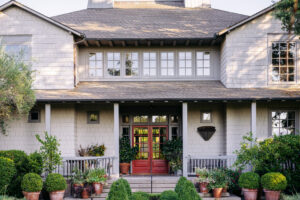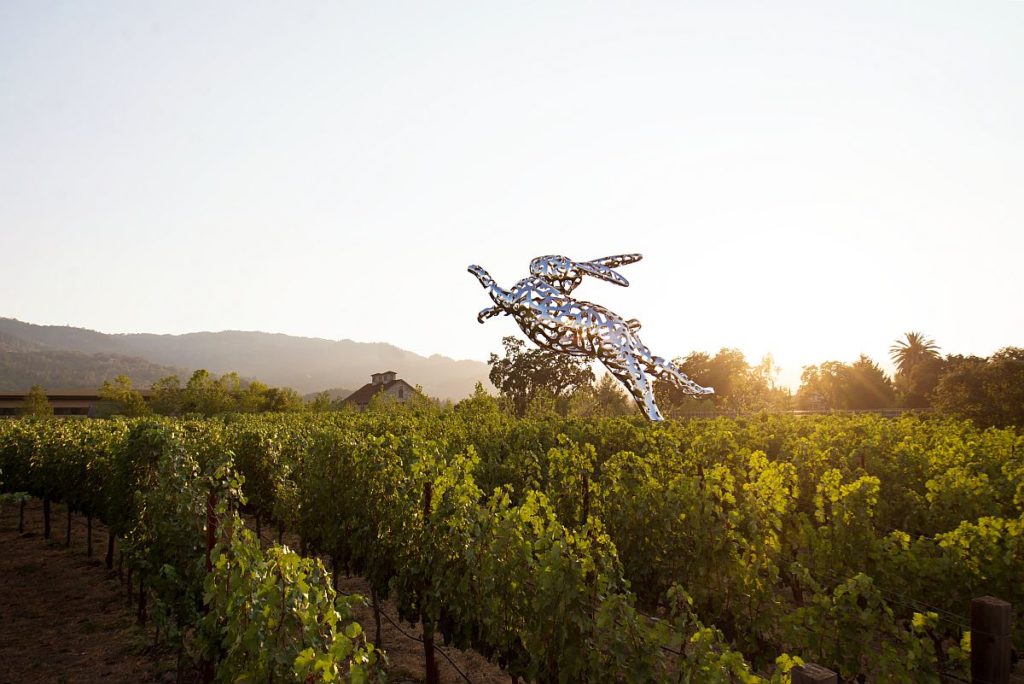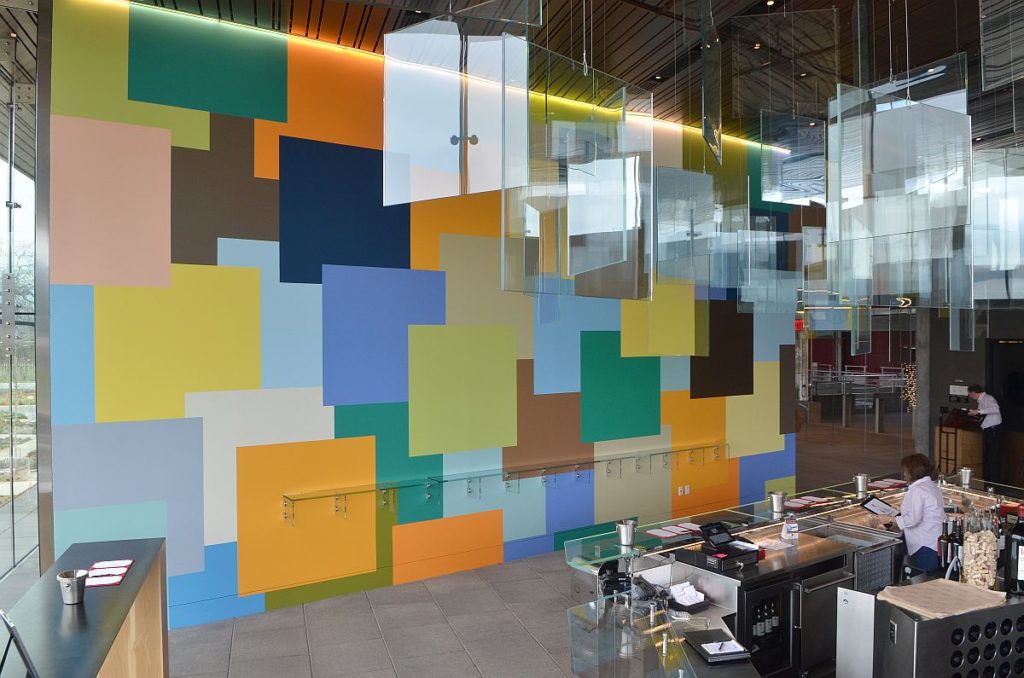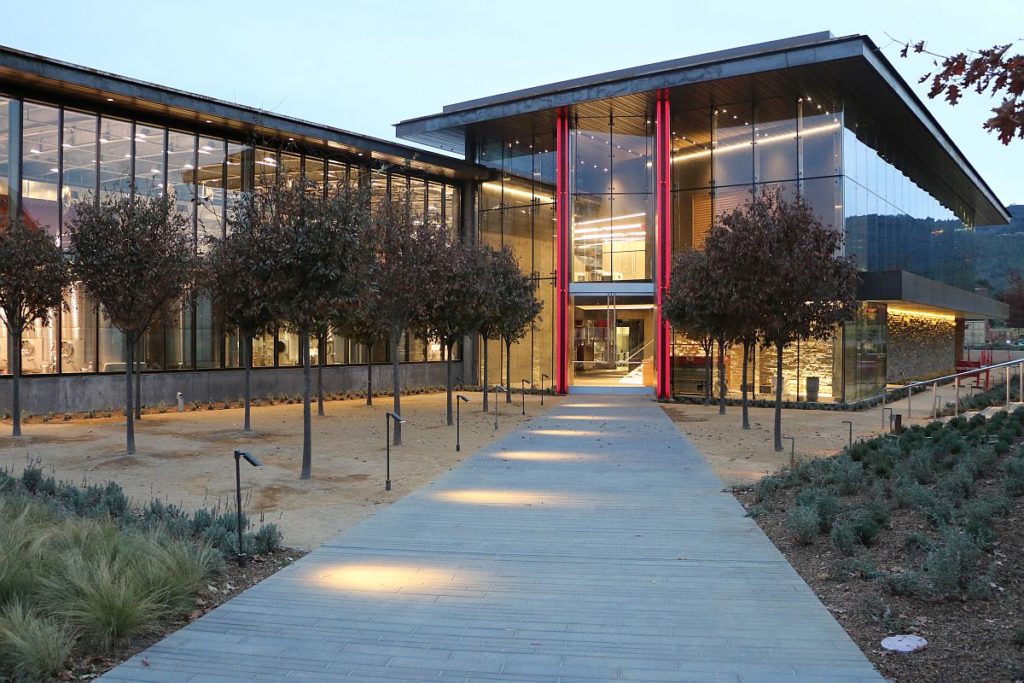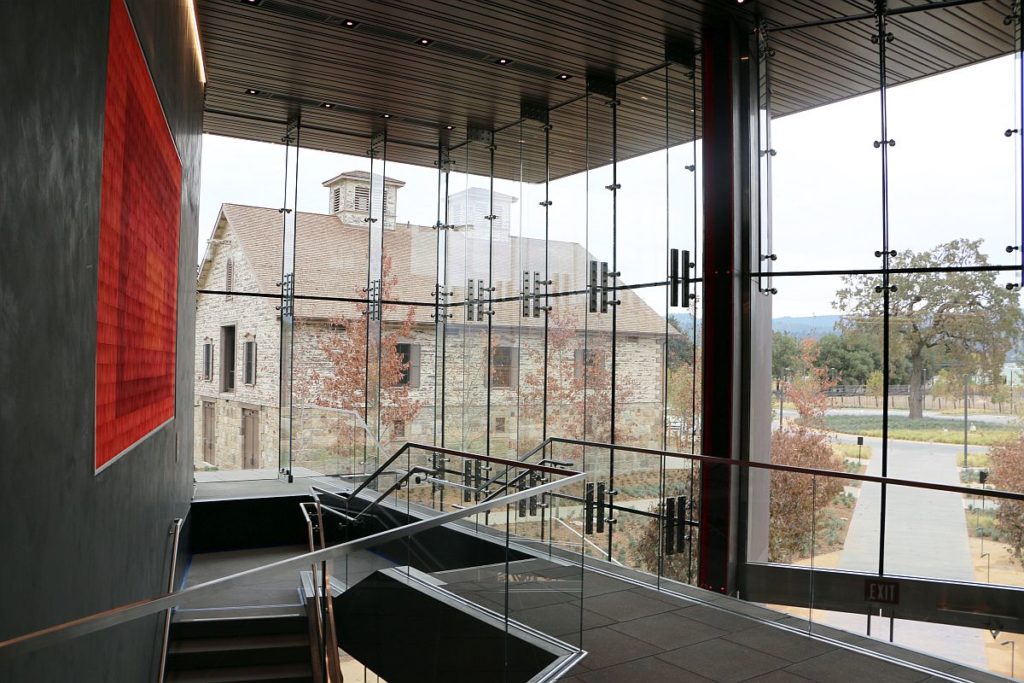Despite our best intentions, making eco-friendly choices can sometimes be difficult, especially while traveling. To make it a little easier to enjoy the good life without guilt, many Wine Country businesses — wineries, restaurants and hotels — are implementing sustainable practices that take into consideration the local and global environment. Among them is Hall Wines in Napa Valley.
Although it may be most famous for its Cabernet Sauvignon and the giant stainless steel bunny that leaps into its vineyard, Hall Wines in St. Helena is also the first California winery to earn LEED (Leadership in Energy and Environmental Design) Gold certification for its fully sustainable production facility (the winery has also been awarded LEED Gold certification for its tasting room).
“If our business isn’t sustainable, then it won’t survive,” says Hall Wines viticulturist Domenick Bianco. “But looking at the movement more holistically, the real reason sustainability is important to us is that it pushes us to look at how we impact the environment both in terms of our business practices and in terms of our relationships within the community.”
In the hospitality industry, a business’ commitment to sustainability isn’t always easy for the consumer to see. For example, 11 percent of building materials used in the construction of Hall Wines’ St. Helena property came from recycled materials. The winery’s vineyards and landscaping are irrigated with recycled wastewater and, throughout the property, drought-tolerant plants reduce water consumption.
To further improve water efficiency and conservation, Hall Wines uses high-tech solutions such as weather stations that supply data, which helps estimate vine water usage, and neutron probes that provide soil moisture readings. Additionally, rooftop solar panels on the barrel cellar and fermentation building provide more than 35 percent of the power at Hall Wines’s St. Helena property.
“Sustainability is not a singularly focused initiative,” says Bianco. “It takes into account many different elements spread across a broad spectrum of ideals. It pushes us to continually invest in bettering our community, our employees, our farming practices, and our philanthropic causes.”
Click through the above gallery to discover other ways HALL St. Helena makes sustainability a top priority.









